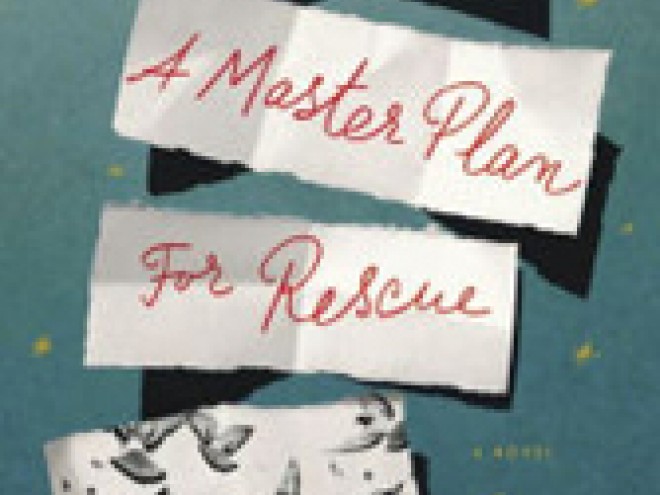

Earlier this week, Janis Cooke Newman wrote about using fiction to understand historical time periods and why she writes historical fiction. She is the author of the novel Mary: Mrs. A. Lincoln and A Master Plan for Rescue as well as a memoir The Russian Word for Snow. She has been blogging here all week for Jewish Book Council’s Visiting Scribe series.
Since I’ve been blogging all week about writing historical fiction, it seemed fitting to wrap up with a list of my five favorite historical novels — at least out of those that have been published recently.
I’m a big fan of The New York Times Book Review. Every week, I scour it to see what I should read next. One reason I do this, is because I run a writers conference in the Northern California wine country and I’m always on the lookout for authors to teach at it. But also, as a writer, I think it’s important to keep up with my colleagues — to see what new tricks they’re trying out on the page.
Looking over my list, I notice that three of my recommendations are set — or partially set — during World War II, the time period of my own novel. When I started A Master Plan for Rescue, I had trouble finding anything new that was set during World War II — and I do remember searching. But lately, there’s been a bumper crop of wonderful novels set in that era. Which kind of makes you wonder what was in the cultural ether seven or eight years ago that prompted so many of us to write about the time period.
Perhaps a subject for another blog post?
1) The Last Flight of Poxl West by Daniel Torday. The last time I was this excited about a book, it was All the Light We Cannot See. Torday gives us a cleverly nested tale within a tale — a man tells the story of being a boy and reading the memoir of his dashing uncle’s exploits as a Jewish RAF pilot during World War II. But the novel is truly about stories — how we tell them, and who they belong to. And every storyline within the book is both wry and heartbreaking.
2) A God in Ruins by Kate Atkinson. Atkinson covers some of the same wartime territory — the London Blitz — as Torday in her wonderful novel, but she also does remarkable things with time in this book. She foregoes a linear narrative line — and a singular point of view character — and takes us from the 1940s through the 1970s to the present, building a world and family the way you’d assemble a vivid jigsaw puzzle. In the end, she says some profound things about war and the losses it brings.
3) Saint Mazie by Jami Attenberg. Mazie Phillips was a real person — a Bowery theater ticket seller who walked the streets at night handing out change to bums during the Great Depression. Attenberg had little factual information to go on to create her fictional Mazie — not much more than a Joseph Mitchell article — yet she fashions a flawed, big-hearted, dame of the streets in this funny and touching novel, using one of the most creative (and tricky) structures I’ve seen. And as if that weren’t enough, Attenberg also brings to life Mazie’s unseen biographer.
4) The Fair Fight by Anna Freeman. The time period is the late eighteenth century, and the place is Bristol, England. But what is so amazing about this novel — in addition to the female pugilists — is the prose. Freeman invents a vivid vocabulary for her characters — a whole new language for fighting — that propels the action forward with such incredible energy, it leave you breathless. This book also had two of the best female characters I have seen in a long while.
5) All the Light We Cannot See by Anthony Doerr. If you have not read this combination Bestseller/Pulitizer Prize winner yet, what in the world are you waiting for? Very rarely does a writer hit the sweet spot where luminous prose you read over to yourself just for the sound of it meets page-turning plot that keeps you up late at night. This is the book we all wish we’d written, the book we wish we’d forget so we could read it again for the first time. It has everything — World War II, a father trying to protect his daughter, an evil Nazi. What’s not to like?
Janis Cooke Newman is a member of the San Francisco Writers’ Grotto, on the board of Litquake, and a founder and organizer of the Lit Camp writers conference. Read more about her and her work here.
Related Content:
Janis Cooke Newman is the author of the novels A Master Plan for Rescue, Mary: Mrs. A Lincoln, and the memoir The Russian Word for Snow. She is the founder of the Lit Camp writers conference.


